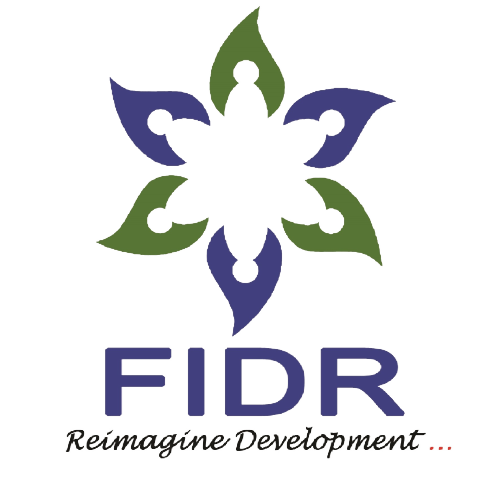Cause Area
Geographies Served
Programs
-
Social research
FIDR engages in comprehensive social research, employing both qualitative and quantitative research methodologies to gain profound insights into diverse aspects of community development. The organization conducts large-scale surveys, capturing a broad spectrum of data. Rigorous monitoring and evaluation processes are implemented to assess the effectiveness of ongoing programs, ensuring continuous improvement and impactful outcomes. FIDR also undertakes impact assessment studies, meticulously analysing the long-term effects and contributions of its interventions. Furthermore, the organization conducts social audits, fostering transparency and accountability in its operations, and promoting a participatory approach to community development.
-
Implementation of social development work and policy formulation
FIDR actively engages in the implementation of social development initiatives, working towards policy formulation to address pressing societal issues. The organization places a strong emphasis on gender-related programs, fostering equality and empowerment for women and children. In the realm of women and child development, FIDR focuses on creating comprehensive strategies that encompass education, healthcare, and skill development. Rural enterprise development is a key area of intervention, aiming to enhance livelihoods and economic opportunities in rural communities. Initiatives related to water and sanitation seek to improve access to clean water and sanitation facilities, contributing to public health and environmental sustainability. FIDR is deeply committed to tribal development, implementing targeted projects that respect and uplift indigenous communities.
-
ICT for development
FIDR is dedicated to leveraging Information and Communication Technology (ICT) for holistic development, adopting multifaceted approaches to drive positive change. The organization actively promotes digital literacy, recognizing it as a fundamental skill in the modern world. By facilitating programs that enhance digital proficiency, FIDR seeks to bridge the digital divide and ensure that communities, especially those in underserved areas, are empowered with the knowledge to navigate the digital landscape. Additionally, FIDR is at the forefront of promoting ICT solutions for development, harnessing technology to address socio-economic challenges. From innovative applications to tailored solutions, the organization explores various avenues to integrate technology into sustainable development practices.
-
Livelihoods and poverty alleviation
FIDR is deeply engaged in initiatives aimed at enhancing livelihoods and alleviating poverty, employing a multifaceted strategy to address socio-economic challenges. Recognizing the pivotal role of micro-credit, the organization facilitates financial access for individuals in underserved communities, empowering them to start or expand small businesses. Complementing this approach, FIDR places a strong emphasis on employment-linked skill training programs, equipping individuals with the necessary expertise to thrive in diverse sectors. Through micro-enterprise development, the organization fosters entrepreneurship, supporting the establishment and growth of small enterprises that contribute to local economies. As part of its commitment to employment generation, FIDR implements sustainable projects that create job opportunities, promoting economic resilience in marginalized communities.
-
Communication and capacity building
FIDR dedicates its efforts to effective communication and capacity building, recognizing these as crucial components in promoting sustainable development. The organization implements Information, Education, and Communication (IEC) programs, designed to disseminate essential knowledge and foster awareness within communities. In parallel, FIDR engages in institutional capacity building, both in urban and rural settings, working to strengthen the capabilities of organizations to better serve their constituencies. This involves targeted training programs, where FIDR focuses on developing comprehensive training designs and materials that address specific needs and challenges. Furthermore, the organization places a significant emphasis on community mobilization, fostering active participation and collaboration among community members. By integrating these initiatives, FIDR aims to create a robust framework that not only imparts valuable information but also builds the capacity of individuals
-
Natural resources management
FIDR is deeply committed to the sustainable management of natural resources, recognizing the pivotal role they play in fostering holistic development. In the realm of agriculture development, the organization actively promotes sustainable practices to enhance productivity and protect the environment. A notable focus lies on the promotion of organic agriculture, encouraging farming methods that prioritize soil health, biodiversity, and ecological balance. FIDR is also engaged in watershed management initiatives, implementing strategies to conserve water resources, prevent soil erosion, and ensure the overall health of ecosystems. The organization undertakes initiatives in broader environmental conservation, working towards the protection and preservation of ecosystems and biodiversity.
-
Strategic CSR
FIDR excels in the domain of Corporate Social Responsibility (CSR) by meticulously developing CSR Master Plans that encompass clearly defined indicators for output, outcome, and impact. The organization goes beyond theoretical frameworks and actively implements CSR plans by deploying its team of seasoned professionals at partner locations. FIDR offers comprehensive consultancy services tailored to specific needs or projects, leveraging its expertise to guide corporations in aligning their CSR initiatives with sustainable and impactful outcomes. The organization conducts rigorous impact assessments of ongoing CSR programs, ensuring that the intended benefits are realized and identifying areas for continuous improvement.
Leadership Team
-
Charudutta Panigrahi
Chairman
-
Debi Prasan Patnaik
Secretary
-
Bhaskar Parichha
Trustee
Demographics & Structure
-
Organisation Strength
None
Registration Details
-
PAN Card
AAATF2260M
-
Registration Number
1448
-
CSR Form 1
Not Available
-
80G
AAATF2260MF20214
-
12A
AAATF2260ME20216
-
FCRA
104830267
About
-
Headquarters
Bhubaneswar, Odisha
-
Since
2002
Impact
Over 104,000 lives impacted in collaboration with 162 partners in about 100 projects supported by,50 team members.
Vision and Mission
FIDR's objectives are to promote good governance processes through an appropriate platform for improved service delivery in Livelihoods, Civic Services, Environment & Economic development.
Political & Religious Declarations
-
Political Affiliation
-
Religious Affiliation
Location
-
Headquarters
27, Forest Park, New Bapuji Nagar, Bhubaneswar, Khurda - 751009, Odisha, India
Directions, Bhubaneswar, Odisha -
Offices in Cities
Other Details
-
Type
Non-profit
-
Sub Type
Trust
Website
Technology Adoption
-
SOC 2 Compliant
No
-
Financial Management
-
Beneficiary Management



